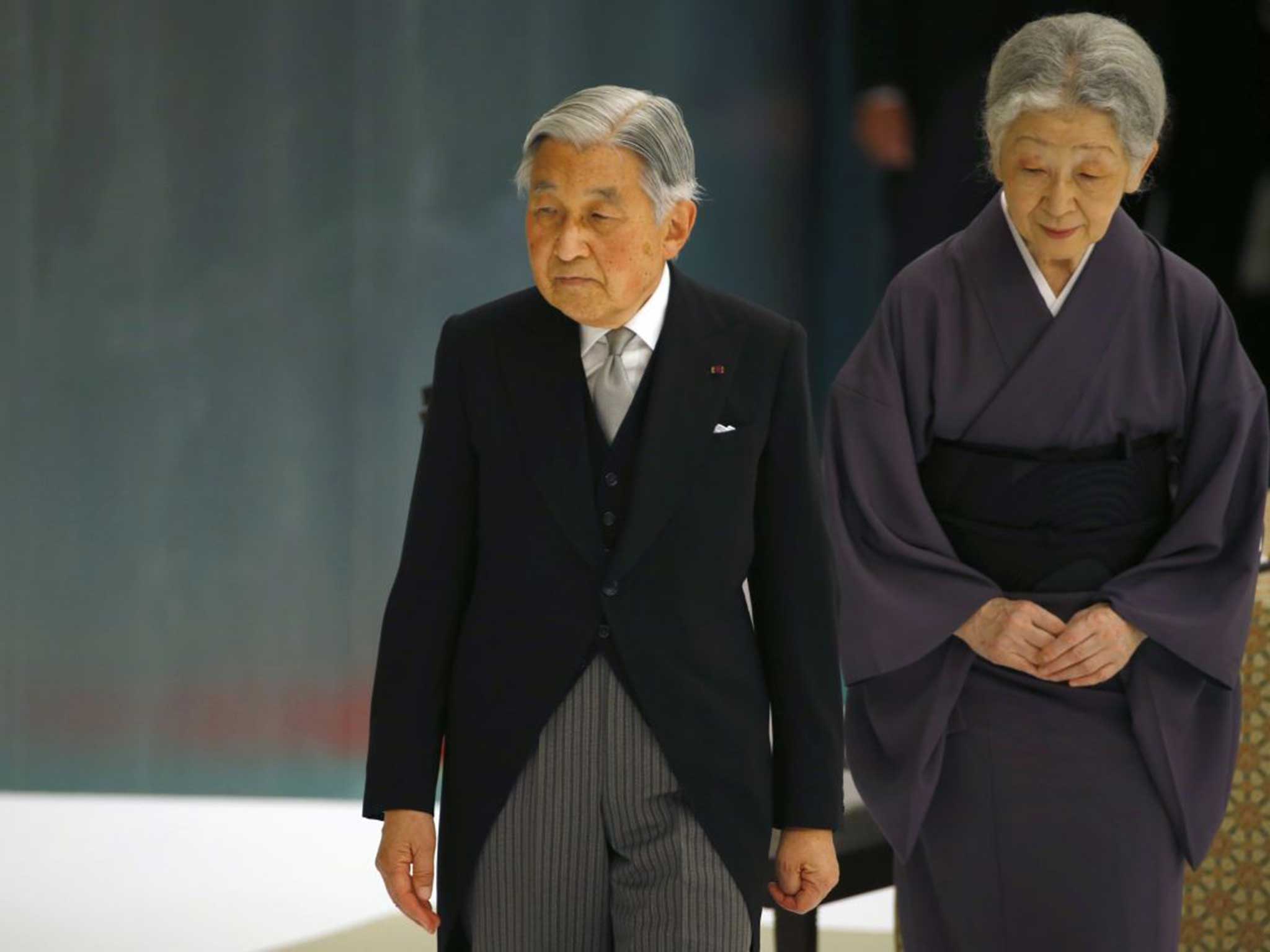VJ Day anniversary: Japanese Emperor's contrite apology welcomed as Prime Minister Shinzo Abe's criticised
Japan's neighbours criticised Shinzo Abe's remarks on day that WWII ended

Your support helps us to tell the story
From reproductive rights to climate change to Big Tech, The Independent is on the ground when the story is developing. Whether it's investigating the financials of Elon Musk's pro-Trump PAC or producing our latest documentary, 'The A Word', which shines a light on the American women fighting for reproductive rights, we know how important it is to parse out the facts from the messaging.
At such a critical moment in US history, we need reporters on the ground. Your donation allows us to keep sending journalists to speak to both sides of the story.
The Independent is trusted by Americans across the entire political spectrum. And unlike many other quality news outlets, we choose not to lock Americans out of our reporting and analysis with paywalls. We believe quality journalism should be available to everyone, paid for by those who can afford it.
Your support makes all the difference.The Japanese emperor appeared to subtly rebuke the country’s conservative leader on Friday during a memorial ceremony for the anniversary of Japan’s defeat in WWII.
Emperor Akihito spoke at the ceremony on Saturday – the anniversary of the day his father Hirohito announced Japan’s defeat – voicing his “deep remorse” for the “tragedy of war”.
It comes as Prime Minister Shinzo Abe expressed “utmost grief” for Japan’s actions in the course of WWII but added that future generations should not continue apologising for Japan’s actions during war. His remarks have been criticised by neighbouring nations, who claimed the speech left "much to be desired".
Following Japan’s defeat, the emperor’s status as a “living god” ended with the now strictly symbolic figure constitutionally barred from making political statements.
Despite this, the emperor’s carefully constructed speech appeared to reproach aspects of Mr Abe’s attitude to the 20 century conflict.
“Looking back at the past, together with deep remorse over the war, I pray that this tragedy of war will not be repeated and together with the people, express my deep condolences for those who fell in battle and in the ravages of war, and pray for world peace and the further prosperity of our country,” emperor Akihito told the audience at Tokyo’s Budokan hall on Saturday.
In contrast, the PM’s longer speech – while touching on a number of issues – offered no fresh apology of his own and has been criticised by the leaders of both South Korea and China.
In his speech, Mr Abe said Japan must ensure “children, grandchildren, and even further generations to come” are not “predestined to apologise.”
It marked a departure from a landmark 1995 speech by Tomiichi Murayama, which apologised for the colonial rule and Japanese “aggression” on the mainland.
Japan’s neighbours have claimed Mr Abe is attempting to set the clock back on the country’s behaviour in WWII, most notably the widespread use of ‘comfort women’.
Mr Abe appeared to make an oblique reference to these women – forced to work as sex slaves - when he said women “behind the battlefields whose honour and dignity were severely injured”.
But South Korean President Park Geun-hye told AFP that Mr Abe’s speech “left much to be desired”.
Join our commenting forum
Join thought-provoking conversations, follow other Independent readers and see their replies
Comments